The Church of England's pioneering role in women's education
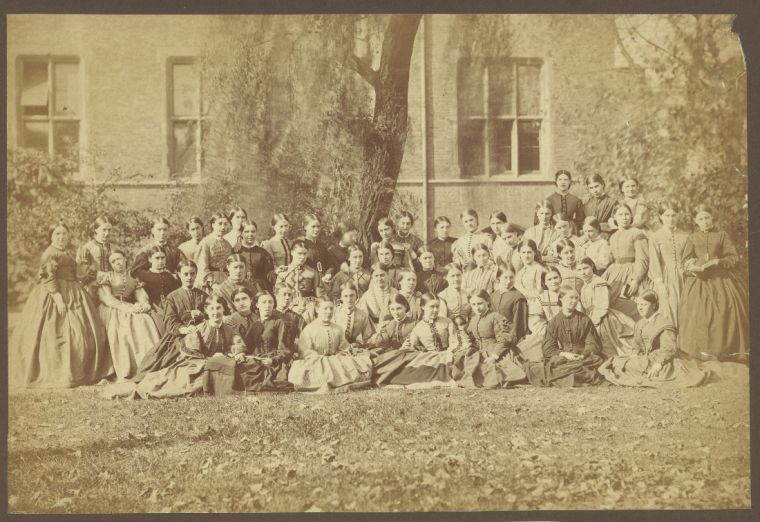
Whitelands College, at the University of Roehampton, is a popular and picturesque educational establishment on the edge of London's Richmond Park. While steeped in history, what many may not know is its special Christian heritage.
Not only is it one of the oldest higher education institutions in England, but it was set up by two priests as a teacher training college for women in 1841.
Rev John Sinclair and Rev John Shephard, of the Church of England's National Society, founded the college to train young ladies as elementary school mistresses for the poor.
The college was initially located in the three-storeyed Georgian building known as Whitelands House, situated on the King's Road in Chelsea, and it enrolled its first students in January 1842.
Although the house was grand in appearance, the beginnings of the college were humble, with women studying in unsanitary and cramped conditions.
Among the subjects taught were needlework, map drawing, essay writing and music.
Later on in 1874, under the leadership of the first principal, Rev John Pincher Faunthorpe, further subjects were added to the curriculum - French, Latin, science, algebra and geometry to name a few.
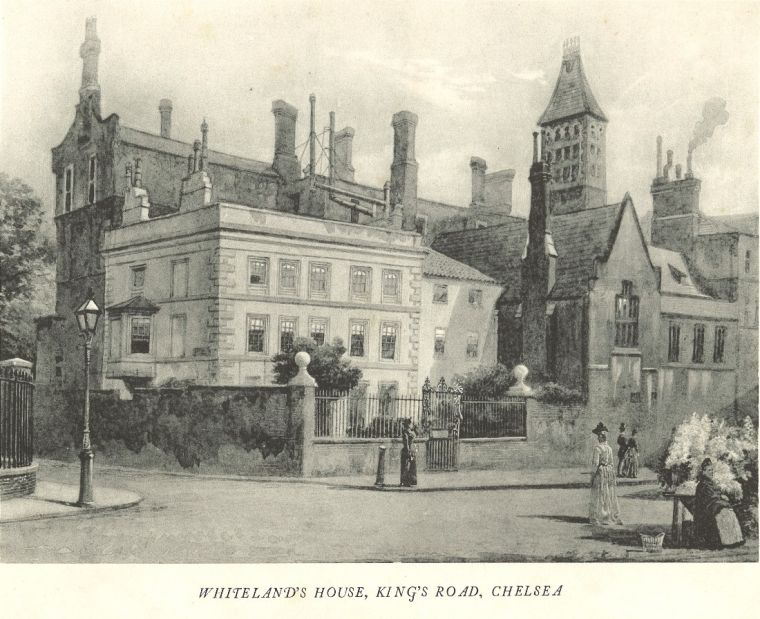
Whitelands achieved much in the final quarter of the 19th century as students went on to be appointed as lecturers, governesses and principals to over half the training colleges in England.
In 1878 the college was recognised as the 'best in England' by Her Majesty Queen Victoria's inspector.
In the present day, Whitelands is one of the four colleges that make up the University of Roehampton and is home to the Departments of Life Sciences & Nursing, as well as Psychology.
This year marks the 180th anniversary of the first student being enrolled at the college and -Covid-permitting - a series of events will take place on campus to commemorate the occasion.
"I've not been able to do all the things I've wanted to do because of Covid restrictions," says Dr R David Muir, Head of Whitelands.
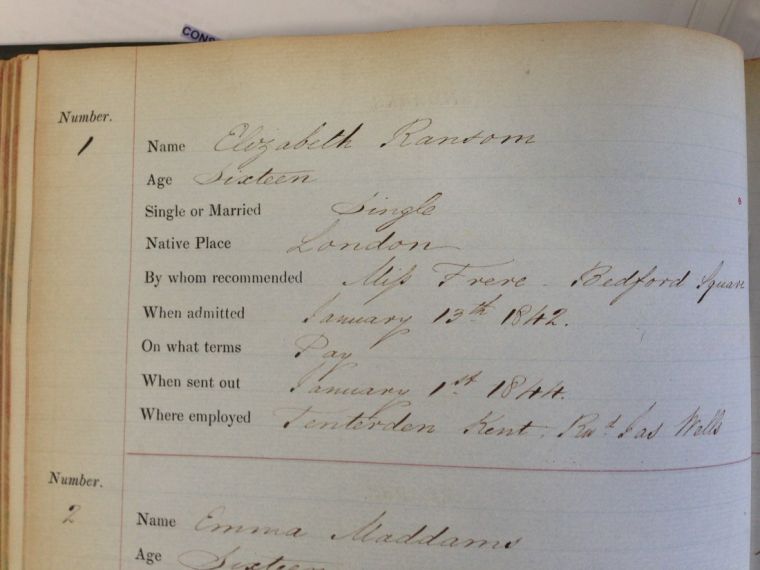
David, who calls himself the 'Covid Head of College', was appointed to his post two years ago and is passionate about continuing to make Whitelands College "an environment for inclusion, diversity and excellence".
"That's part of my motto in my business plan," says David, who used to be head of Public Theology at the Evangelical Alliance UK.
"In a sense that's very much a Church of England vision - you are accepted regardless of where you come from."
The opening of the college came at a time where women were regarded as second class citizens and society was male driven. Women were denied the right to vote and so their voices were never considered.
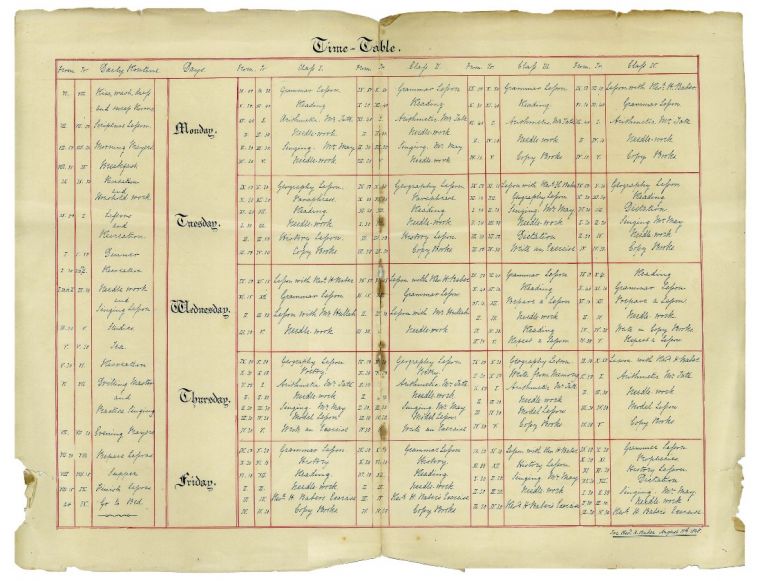
Education, David says, is a "route to mobility".
"It's also a route to equality. If you've got all these educated women, you can't maintain for too long patriarchal attitudes about women.
"At a time when Cambridge weren't taking women for teacher training, Oxford weren't taking them, neither were Durham nor London, the Church of England established a higher education training college for females, which is really quite something."
In the days of Rev Faunthorpe, former students also went on to join Whitelands staff.
This trend still occurs at Whitelands today – albeit the student roster now includes men.
Steven Taggart, College Life Development Officer, studied Zoology at the campus as an undergraduate. He then went on to study a Masters in Primate Biology Behaviour and Conservation. After this he took up his current role.
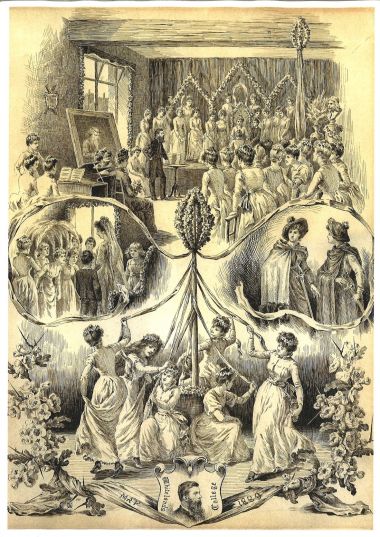
Campus events are facilitated by Steven and one of the biggest events is May Day, an annual ceremony that takes place on the second Saturday in May. The tradition dates back to the 19th century and was inaugurated by the art critic and writer John Ruskin in 1881.
Each year the students were to elect the "likeablest and the loveablest" among them to become their May Queen.
In the present day the students of Whitelands come forth and put their name forward to become May Monarch.
"They meet the head of college and choose a charity that they wish to support," Steven explains.
Posters with a small biography of candidates are put up around the college and the students then vote for the one they think most deserves to become the next May Monarch.
The role is taken up on May Day and lasts for one year.
Mrs Shirley Williams, a former Whitelands College Governor from 1996 to 2020 and enthusiast of the celebration, describes May Day as 'bizarre but rather splendid!"
"It is very much like going to a posh wedding and a wonderful tradition that should be continued long into the future," she says.
This year will mark the 141st May Day at the college and students are hoping they will have the opportunity to celebrate in pre-Covid fashion.
Dr Priscilla Chadwick, Chair of the Whitelands College Foundation and fellow May Day advocate describes the day as a "very spectacular occasion".
Maypole dancing takes place, a tradition passed down from the inaugural ceremony of May Day, and a service is held in the college chapel.
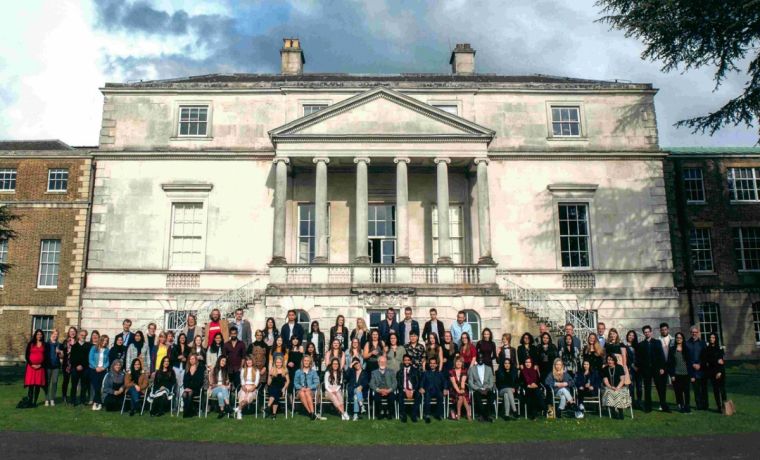
Last year due to social distancing restrictions, the celebrations were held virtually.
Whitelands has an enviable location in the leafy suburbs of south-west London, with Richmond Park just a stone's throw away, a feature of the college that's not lost on the students or staff.
On his first day stepping foot onto the campus, Whitelands Student President Jai Patel was captivated by the beauty of the college and its stark difference to the busyness of London.
He finds it 'fascinating' that it was one of the first institutes of higher education and the fact that once upon a time it was for women only.
"It's a nice institute to work for. You can see that everything done here is in the name of good," he says.
Education was on the Church of England's agenda before it was a matter for the state.
"It wasn't until 1870 that the state got involved in national education," says Priscilla.
"The National Society for two centuries has been very committed to the education of the nation's children.
"You can't do that without obviously training teachers. It was important to set up the teacher training colleges to provide the teachers to work in schools."
She adds: "Now Whitelands is proud to be part of the ecumenical University of Roehampton, successfully educating an impressive community of students for a diverse range of professional careers."











